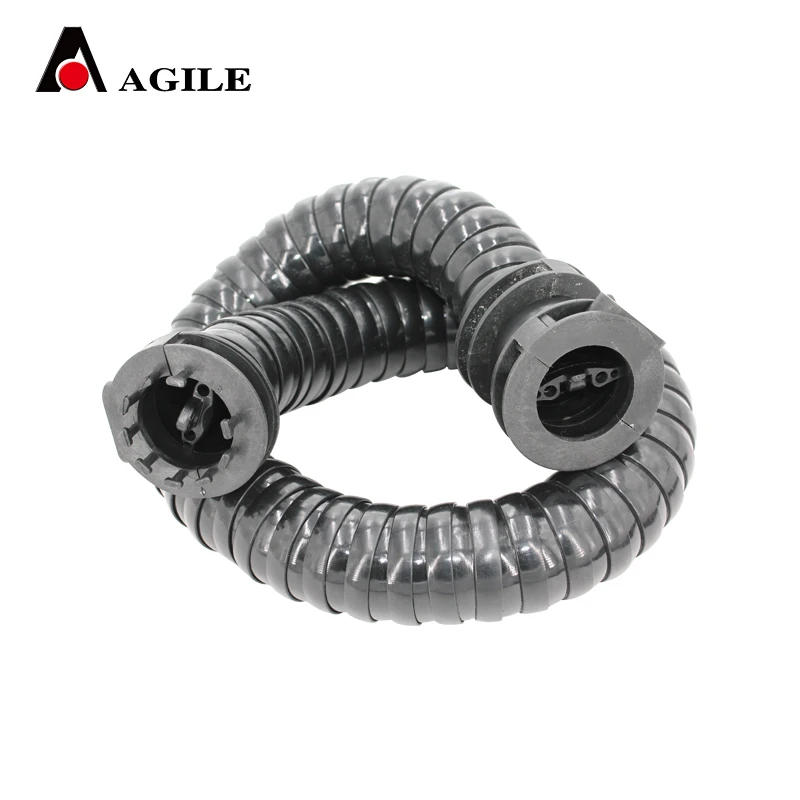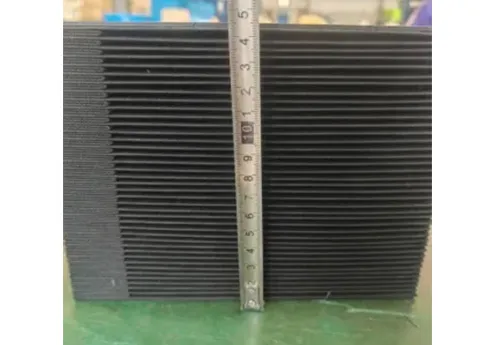60*150 mm MT open type nylon flexible both side openable cable chain
The energy chain cable carrier has emerged as an essential component in the modern industrial landscape, playing a critical role in ensuring the seamless operation of machinery across various sectors. With its unmatched ability to protect and guide cables, hoses, and hydraulic and pneumatic lines, this ingenious solution has become indispensable in industries ranging from automation to heavy machinery. A profound understanding of what makes an energy chain cable carrier not only enhances operational efficiency but also ensures longevity and reliability in high-demand environments.
Implementing an energy chain cable carrier system requires expertise and an understanding of the specific demands of the application at hand. Selecting the appropriate type involves considering factors such as the total cable load, the chemical environment, ambient and operational temperatures, the nature and frequency of motion, and potential external impact forces. Installing the wrong type of carrier can result in inefficient performance and may necessitate costly replacements or system redesigns. End users also value the authority of manufacturers and suppliers who offer extensive arrays of accessories and customization options, enabling them to better match system needs. Whether adding internal dividers to separate cables and optimize space usage or choosing custom bending radii and travel lengths, these options bolster a system’s reliability and functionality, making the carrier system a fully integrated component of the machinery rather than an afterthought. To achieve maximum benefit from an energy chain cable carrier, collaboration with industry experts during the design and implementation phases is paramount. Having professionals who are familiar with the nuances of specific applications ensures that the selected carrier configurations align with both present and future operational requirements, enhancing the lifespan and efficiency of these critical components. Through expert consultation, companies can achieve greater operational throughput and lower total cost of ownership, making the investment in quality energy chain cable carriers worthwhile. In conclusion, energy chain cable carriers are more than mere protectors of cables and hoses. They embody a blend of engineering finesse, material innovation, and industrial pragmatism, making them a cornerstone of reliable industrial operations. As industries continue to evolve and demand even more sophisticated and efficient systems, the role of the energy chain cable carrier will only grow, necessitating ongoing innovation and expertise to meet emerging challenges and opportunities.


Implementing an energy chain cable carrier system requires expertise and an understanding of the specific demands of the application at hand. Selecting the appropriate type involves considering factors such as the total cable load, the chemical environment, ambient and operational temperatures, the nature and frequency of motion, and potential external impact forces. Installing the wrong type of carrier can result in inefficient performance and may necessitate costly replacements or system redesigns. End users also value the authority of manufacturers and suppliers who offer extensive arrays of accessories and customization options, enabling them to better match system needs. Whether adding internal dividers to separate cables and optimize space usage or choosing custom bending radii and travel lengths, these options bolster a system’s reliability and functionality, making the carrier system a fully integrated component of the machinery rather than an afterthought. To achieve maximum benefit from an energy chain cable carrier, collaboration with industry experts during the design and implementation phases is paramount. Having professionals who are familiar with the nuances of specific applications ensures that the selected carrier configurations align with both present and future operational requirements, enhancing the lifespan and efficiency of these critical components. Through expert consultation, companies can achieve greater operational throughput and lower total cost of ownership, making the investment in quality energy chain cable carriers worthwhile. In conclusion, energy chain cable carriers are more than mere protectors of cables and hoses. They embody a blend of engineering finesse, material innovation, and industrial pragmatism, making them a cornerstone of reliable industrial operations. As industries continue to evolve and demand even more sophisticated and efficient systems, the role of the energy chain cable carrier will only grow, necessitating ongoing innovation and expertise to meet emerging challenges and opportunities.








